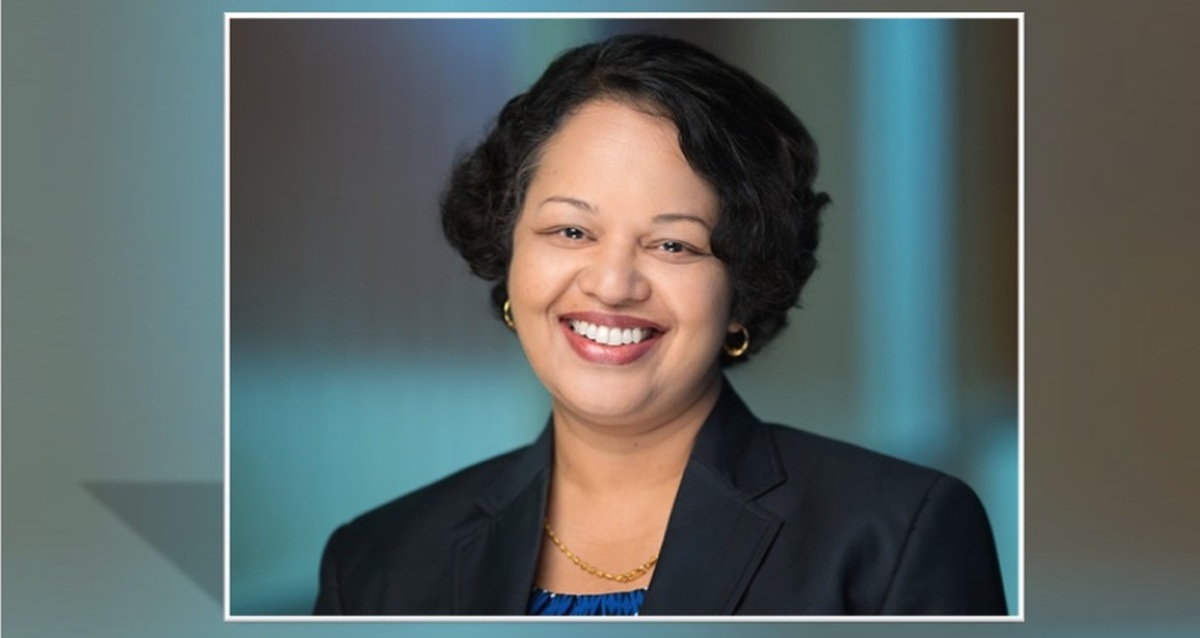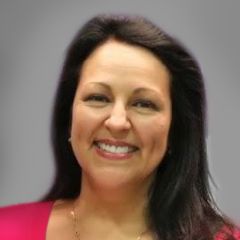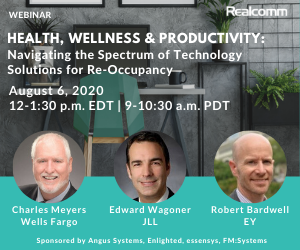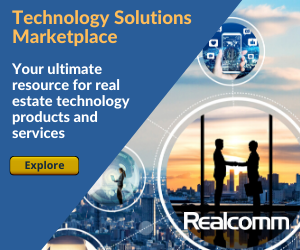CBREís New CAO: Chandra Dhandapani Talks Leadership, Integrity and Digital Transformation

Chandra Dhandapani is the newly appointed Chief Administrative Officer at CBRE, responsible for its Digital & Technology, People, Marketing and Research organizations. Chandra and her team recruit, retain and develop the industryís top market-facing, functional and leadership talent and amplify CBREís strong brand position, thought leadership, and global marketing and research capabilities.
Realcomm spoke with Chandra about her journey from CIO to CAO, and the company's goals to leverage technology as an enabler, assemble high performing teams and harness data as a differentiator.
How did you progress to the CAO role?
I joined the company in 2016 to lead our digital and technology transformation. CBRE has a strong focus on talent mobility, with a well-thought plan for rotating senior leaders into new roles to expand their experience. This fits well with my interest in taking on new challenges, so I was excited to take the next step in my career when our CEO offered me the opportunity for an expanded role. Bringing our Digital & Technology, People, Marketing and Research teams together under the CAO organization will help us to harness the power of this multidisciplinary team.
Personally, I'm driven by two things. First is pursuing the notion of what's possible and using that opportunity to paint a picture and create something that's bigger than all of us. The second is seeing people do amazing things that they didn't believe they could pull off - and often so much better than the picture we initially painted. Iím excited to paint a picture of CBREís transformation and help it come to life.
Was this a natural progression for you and your skill set?
I think of my career as a set of beautiful hiking trails which give me new perspectives. I started my career with socially minded assignments - a World Bank program investing in the silk industry and helping the government of India rethink building codes and core infrastructure design, following a massive earthquake. I then switched to the highly competitive world of advertising. I was at Capital One for 17 years, where I rotated through various roles in IT, marketing and analytics, operations and digital transformation.
I rely on core skills that are fungible: seeing the big picture, understanding stakeholder needs, establishing clear priorities, getting the right structure in place. This includes talent assessment, team engagement, risk management and financial management. I overlay my experience in technology and data, and focus on learning about and executing on the most important areas of leverage in each role.
What attracted you to IT and what motivates you about this field?
I love solving problems. Technology can make things easier and solve so many business challenges. When I joined Capital One, the auto finance business was quite small and they used Microsoft access databases to run the business. At the time I was a technical writer, which means I had to document these systems. There wasn't much to document so I sat down with the users and drew up UI designs and data models to automate their routine work. Before we knew it, we had built software that became our go-to platform and helped scale the business to $6 billion.
What led you to CBRE?
At Capital One Financial, I had the opportunity to lead the auto and home lending businesses through their digital transformation. When I learned about an opportunity to join an industry whose digital transformation was just beginning, I was excited to take on the challenge. I was also impressed with CBRE's position as the leader in the industry, their global leadership team and especially our CEO, Bob Sulentic. Of key importance was our aspiration to take our place among the best companies in the world, firmly rooted in our RISE (Respect, Integrity, Service, Excellence) values.
What challenges are you experiencing in the new role?
We are going through the same as everyone else during this unprecedented time in terms of the health crisis and the economy. As a leader entering a new organization, the first thing you do is connect with people and get to know them. Doing that remotely is an interesting challenge: how do you give your leadership teams the understanding to focus on the right priorities with so many working from home? We are getting through it well, but it's not what I would have considered optimal a year ago.
Has your new position given you different insight into the business?
It has opened my eyes to all the ways we can connect the dots between data and technology. I'm a big believer in multidisciplinary problem solving. In our People organization, I can see what people actually need to generate more insight or provide more automation; it's fertile ground for people and entities to work more closely. In Marketing and Research, we focus on providing our transaction professionals (who are negotiating property sales and financing and leases for the acquisition or disposition of space) with local market data. Our Thought Leadership group is looking at economic and health trends to help us better understand the future of our industry. All of these share interconnectedness. From that perspective, you see tremendous opportunity open up. We have to bring thought leadership to life in a meaningful way that people can easily interpret and understand.
Which thought leadership topics are currently of interest?
Thereís a lot of dialogue about how the role of the office is changing and what it will look like going forward. We know that some people may prefer to keep working from home, at least part of the time; however, the office is indispensable for collaborating and building and sustaining a culture. Secondly, in economically challenging times, it's increasingly important to focus on employee engagement. There's a war for talent that actually intensifies at times like these and we have to understand what attracts that talent.
How have customer needs changed recently and how are you accommodating those needs?
In any environment, but especially now, listen carefully to what clients are saying. They may need help identifying their needs. Clients are looking for guidance during a time of uncertainty; you can help them differentiate the noise from the signal. How do you identify leading indicators into other markets that are starting to come back? Which cities will do better than others? Where is the talent mobility? In this industry, we use data but the overall industry is still relatively opaque. Data is such an important connector; we must think of data as an insight generator and early indicator for companies to look ahead and ensure we stay ahead of the game.
We work with the very best companies in the world. We are able to identify common themes and questions that everyone is asking, so our clients don't feel like they have to solve their real estate problems on their own. The most important thing is for us to be a trusted advisor that knows what other companies are going through to find common ground.
What advice would you offer real estate technology executives looking to accelerate their careers?
I love working with people who are smarter than me and will tell me what I need to hear, not what I want to hear. The best team members are those with HEART: Humble, strives for Excellence, brings a positive Attitude, drives Results and is a Team player. Leadership isn't about being in charge; it's about being someone others want to follow.
We are going through a period of unprecedented challenges, but remember, big changes also come with big opportunities. Finally, in an increasingly digital world, make sure you lean in on technology as an enabler.
This Week’s Sponsor
RealFoundations is a global professional services firm focused on helping companies that develop, own, operate, service, occupy or invest in real estate make smarter, more profitable decisions. From the building itself to the way itís developed, operated and capitalized, no firm understands the inner workings of the entire real estate ecosystem as well as RealFoundations. We Make Real Estate Run Better. www.realfoundations.net
Read Next
 5/29/2025
5/29/2025
AI Canít Fix Bad Data. These Ideas Can Get You on the Right Track. Real estate visionaries constantly integrate innovative technology to make their organizations more efficient.
 5/22/2025
5/22/2025
Managing Building Automation and Integration Like an Investment Portfolio What if your building automation and integration decisions were managed with the same precision, discipline, and long-term vision as Warren Buffettís investment portfolio?
 5/15/2025
5/15/2025
Tech, Talent and Transformation: 2025 Digie Finalists Announced For 27 years, Realcomm has presented the Digie Awards to acknowledge companies, real estate projects, technologies, and individuals that have advanced the commercial real estate industry through the strategic use of technology, automation, and innovation.
 5/15/2025
5/15/2025
Empowering Space Management with Data-Driven Visualization For effective CRE space management, itís critical to centralize lease data, maximize rental square footage (RSF), improve energy efficiency and reconfigure spaces to meet changing needs.








%20(1)%20(1)%20(1).png)

-FINAL-RF0723.jpg)


